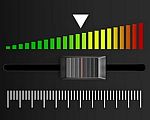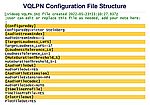 |
|
 |
VQLPN
Audio Loudness Profiler and Normalizer
Software tool for on premise and cloud tasks
VideoQ VQLPN Training Presentation
- Easy-to-use command line tool, for integrated loudness measurement and normalization
- Windows/Linux automated tool, suitable for workstations and cloud computing
- Applications: Production, post-production, transcoding, distribution
- It measures and normalize the audio stream loudness parameters
- Compliant to ITU-R BS.1770-4 (USA ATSC RP A85, EBU R128)
- Editable .INI files store test configurations and target parameters
- VQLPN auto-detects and process all common audio content formats
- It detects and sorts audio segments by types (regular audio, test tone, mute)
- Finally, VQLPN creates Report in JSON format suitable for large databases
- Input and output audio files Media Info parameters
- Integrated Loudness
- Loudness Range
- True Peak level estimate
- Clipping Distortions strength estimate
- It may also include optional Momentary Loudness Profile data array
- TS, M2TS, MPG, MP4, MKV, MXF, MOV, AVI (with or without video stream)
- AUDIO, AAC, AC3, EAC3, M4A, MKA, MP3, OGG, WAV, W64 (audio only formats)
- All audio codecs supported by ffmpeg
- Any bit depth, sampling rate, and bit rate
- Multi-channel formats: 1.0, 2.0, 5.1, 7.1
- AudioFileCodec=AUTO and AudioFileExtension=AUTO means that output file codec is set equal to the input file codec, and this selection also auto-defines the associated output file extension.
- Any other string value, e.g. AudioFileCodec=AAC, means manual selection of output codec.
- VQLPC Correlator
- VQLPP Plotter
- VQILM IL Meter
VQLPN Report includes:
Input media file containers, codecs and formats:
There are two different ways to specify the output audio file format and parameters:
VQLPN provides for automated cloud-based processing and instant workflow configuration.
This tool is especially useful for multi-target streaming and format conversion applications.
Optional stand-alone utility modules:







